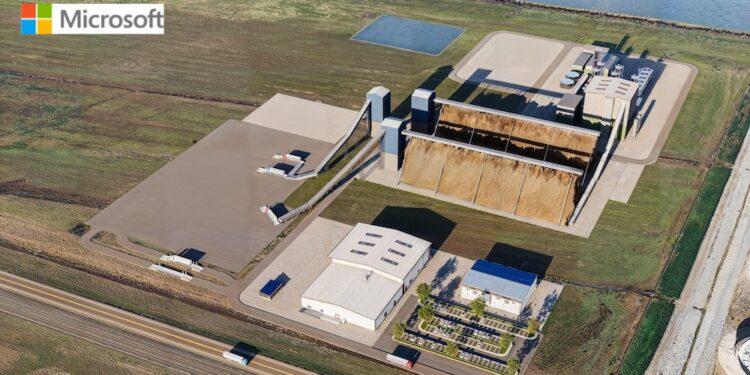In what it describes as the largest permanent carbon removal project to date, Microsoft (MSFT.O) announced on Tuesday that it has signed a deal for a project in Louisiana that will remove 6.75 million metric tons of carbon dioxide over 15 years.
The tech company last recorded annual greenhouse gas emissions of 17.2 million tons at the end of 2023, which was 29.1% higher than 2020 levels due to the increased need for energy for artificial intelligence applications.
Located at the Port of Greater Baton Rouge, the bioenergy carbon capture and storage project being developed by the carbon capture company AtmosClear will use materials such as sugarcane bagasse and forest trimmings to generate energy, capture the associated carbon emissions, and store them underground.
The deal is a component of Microsoft’s 2030 carbon-negative target.
The revelation comes as the future of U.S. carbon removal and sequestration projects, which have been supported in recent years by the 45Q federal tax credit of $85 per ton, is questionable. In future budget talks, the Trump administration is attempting to undo a number of decarbonization incentives implemented under former President Joe Biden.
Regarding whether the project would move forward in the event that the Trump administration reduces or eliminates the tax credit, the companies remained silent.
AtmosClear’s owner, Fidelis, a Texas-based business, stated that it anticipates using the 45Q tax credit for the project’s carbon sequestration component.
According to Fidelis, the project might restore forestry management jobs in the area that had been negatively damaged by recent mill closures, and it is expected to generate over $800 million in investment and approximately 75 permanent and 600 construction jobs.
In a statement, Microsoft’s senior director of energy and carbon, Brian Marrs, said the computer behemoth appreciated the agreement’s focus on jobs in nearby farming areas. According to him, it would also demonstrate Louisiana’s leadership in developing into a center for applied technology and research on carbon management.
Over the past few days, Louisiana state officials have been urging the U.S. Department of Energy and the state’s congressional delegation to save federal funds for the 45Q tax credit and the state’s proposed Direct Air Capture hub in Calcasieu Parish.
The plant’s construction would start in 2026, and commercial operations would follow in 2029.











